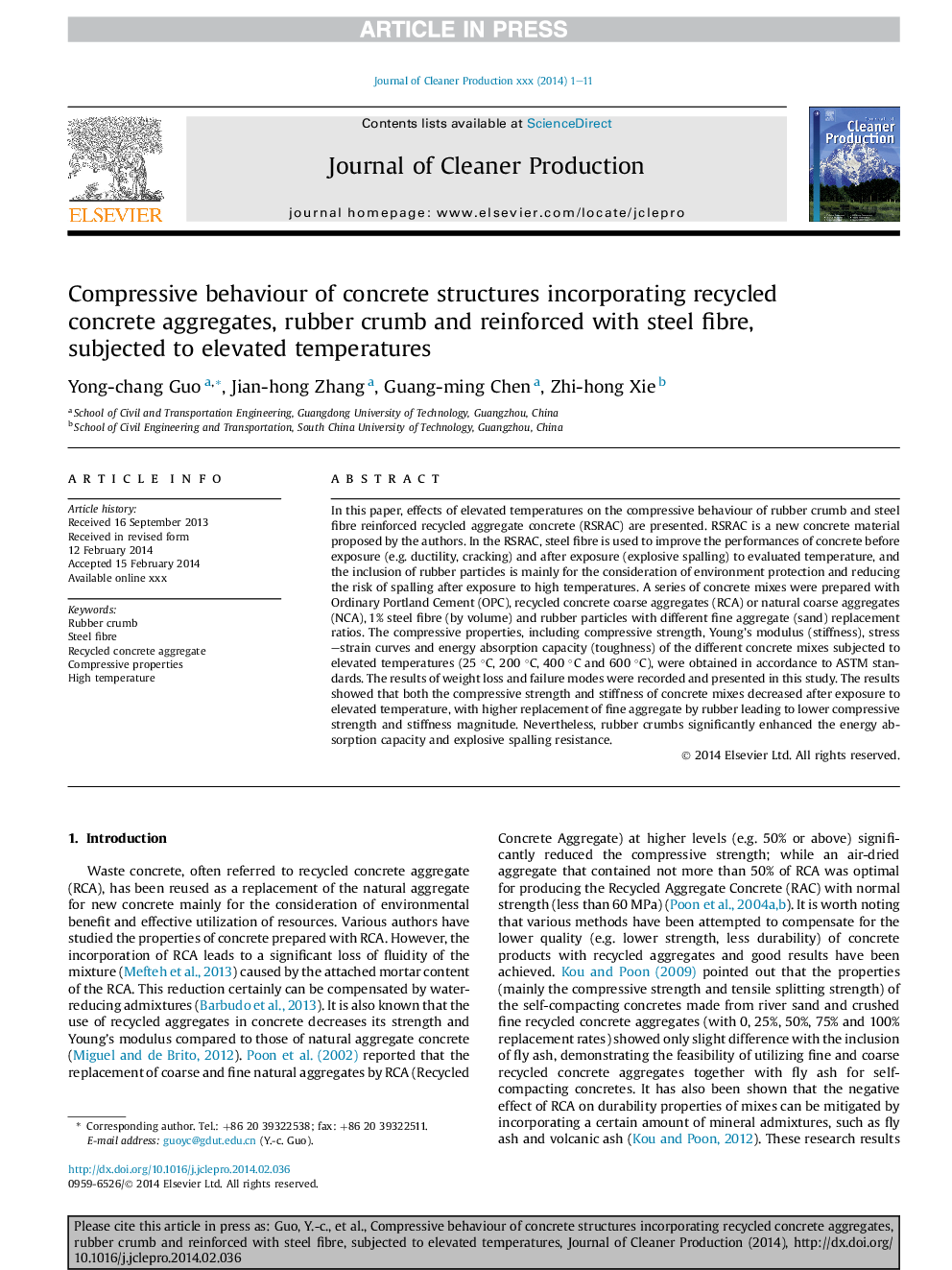| Article ID | Journal | Published Year | Pages | File Type |
|---|---|---|---|---|
| 8106433 | Journal of Cleaner Production | 2014 | 11 Pages |
Abstract
In this paper, effects of elevated temperatures on the compressive behaviour of rubber crumb and steel fibre reinforced recycled aggregate concrete (RSRAC) are presented. RSRAC is a new concrete material proposed by the authors. In the RSRAC, steel fibre is used to improve the performances of concrete before exposure (e.g. ductility, cracking) and after exposure (explosive spalling) to evaluated temperature, and the inclusion of rubber particles is mainly for the consideration of environment protection and reducing the risk of spalling after exposure to high temperatures. A series of concrete mixes were prepared with Ordinary Portland Cement (OPC), recycled concrete coarse aggregates (RCA) or natural coarse aggregates (NCA), 1% steel fibre (by volume) and rubber particles with different fine aggregate (sand) replacement ratios. The compressive properties, including compressive strength, Young's modulus (stiffness), stress-strain curves and energy absorption capacity (toughness) of the different concrete mixes subjected to elevated temperatures (25 °C, 200 °C, 400 °C and 600 °C), were obtained in accordance to ASTM standards. The results of weight loss and failure modes were recorded and presented in this study. The results showed that both the compressive strength and stiffness of concrete mixes decreased after exposure to elevated temperature, with higher replacement of fine aggregate by rubber leading to lower compressive strength and stiffness magnitude. Nevertheless, rubber crumbs significantly enhanced the energy absorption capacity and explosive spalling resistance.
Related Topics
Physical Sciences and Engineering
Energy
Renewable Energy, Sustainability and the Environment
Authors
Yong-chang Guo, Jian-hong Zhang, Guang-ming Chen, Zhi-hong Xie,
